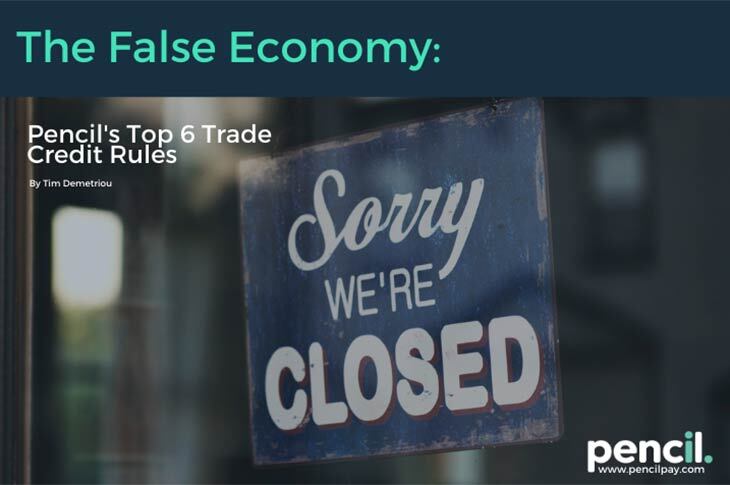
Tim DemetriouJuly 22, 2020Cash Flow , Late Payments
Victorian small businesses had a false start last week.
Shop owners everywhere tried to make the best of a bad situation, big orders were placed with suppliers and storerooms were stocked.
Let’s stop for a moment. You have tens of thousands of small businesses that have been closed, or running at less than 50% capacity, that have just ordered enormous levels of stock to get their businesses restarted.
80% of these orders were placed with 7,14 or 30-day payment terms.
Let’s switch to the companies filling those orders. The manufacturers, suppliers, wholesalers and distributers.
They supply goods to other businesses, mostly on credit. In February 2020, many of their customers were already struggling to pay their bills, with our numbers showing 54% of payments were late.
By the time April hits, it’s a blood bath.
Week 1 of April – 61% of payments are overdue.
Week 2 of April – 71% of payments are overdue.
Week 3 of April – 78% of payments are overdue.
These are Pencils top 6 rules to follow:
- Have a clearly articulated trade credit policy, where all of the staff responsible for communicating with customers understand the rules and any flexibilities that owners/management are comfortable with.
- Ensure your paperwork is top notch. Contracts and personal guarantees won’t necessarily get you paid, but act as a deterrent to bad customer behaviour.
- Make sure you have some security. Having either a credit card or bank account details on file is just the start. You need to ensure you have the authority to both store and charge these accounts. Finally, make sure the option you use is payment card industry (PCI) compliant.
- Communicate a customer’s outstanding accounts to them at every chance possible, which means that certain touch points must be defined and adhered to. Many of these touch points are automated through accounting, inventory and receivables technology.
- Perform your checks. Company & Director Credit checks are not a one off. If you are having problems with a customer, chances are you are not the only one. Credit checks and monitoring services will be the best $30 you will ever spend to protect thousands in unpaid stock.
- Don’t get sucked in. It is often difficult to say no to a customer in need, especially in the current climate. Your credit policy may have changed to be more flexible than before, but make sure it is being followed. A rubber band only stretches so far.
